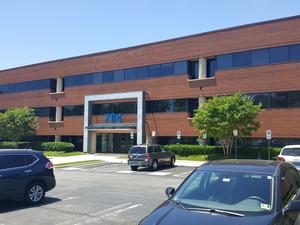
Rockville biotech OpGen Inc. just scored a crucial nod from the Food and Drug Administration to start selling a new test that it said helps doctors recognize antibiotic resistance early in superbugs, leading to more informed treatment decisions.
The diagnostic test, called the Acuitas AMR Gene Panel, helps doctors identify in patients a broad range of genetic antimicrobial resistance markers (AMR) — which are the indicators of superbugs, or drug-resistant diseases such as the commonly known MRSA — to then determine which classes of drugs would treat them best when the normal course of antibiotics won't work, according to OpGen. It said the test can recognize 28 such markers from 26 different pathogens, cutting the potential length of diagnosis from four days to fewer than three hours.
Now, OpGen (NASDAQ: OPGN) plans to launch the product in the U.S. markets before the year ends — and as soon as the next couple of weeks, a company spokesperson said Monday to the Washington Business Journal. This is the company’s third rapid diagnostic test to earn FDA clearance, following two others for lower respiratory infection. The company announced last week that it has also initiated a clinical trial for in urinary tract infection.
“It will provide us with substantial opportunities to grow our business in detecting AMR in life-threatening infections since rapid detection of antimicrobial resistance in both surveillance and diagnostic settings is still a major challenge for the clinical lab,” OpGen President and CEO Oliver Schacht said in a statement, noting it will also “avoid the unnecessary use of antibiotics.”
Drug-resistant bacteria cause more than 2.8 million infections and 35,000 deaths in the U.S. each year, per 2019 data from the Centers for Disease Control and Prevention.
This follows a deal in 2019 in which OpGen acquired all of the shares, assets and liabilities of German molecular diagnostic company Curetis GmbH, a subsidiary of Curetis NV, which makes diagnostic tests for infectious diseases. Under that deal, valued at about $25 million, Curetis became a wholly owned subsidiary of OpGen, and Schacht, formerly chief of Curetis, has been leading the combined company since April 2020. The now 110-employee company still maintains a Curetis office in Germany, in addition to its brand new Rockville headquarters spanning 10,000 square feet at 9717 Key West Ave.
The company has said it hopes this latest superbug test further widens its market reach. OpGen has seen revenue dip in the first half of the year to $1.64 million, down about 11% from $1.85 million in the same period last year, according to Securities and Exchange Commission filings. It attributed some of the dip to discontinuing June 30 a separate line of diagnostic products — dubbed FISH in partnership with ThermoFisher subsidiary Life Technologies — that worked to identify pathogens in blood samples. Though, OpGen has seen its net losses nearly double in that time, from $11.4 million in the first half of 2020 to $21.9 million for the same period this year, partly due to the interest on debts it assumed through the Curetis deal.
It reported Monday that preliminary unaudited revenue reached about $1.2 million for the third quarter, and it closed September with $25.4 million in cash, after finishing 2020 with $13.4 million in cash. Some of that new intake came from a $25 million direct stock offering in February and a deal in March with an investor to exercise the latter's warrants, yielding the company $9.65 million in gross proceeds, according to SEC filings.
In its last quarterly report, OpGen said it has enough cash to last it through the second quarter of 2022, raising questions about whether it can continue as a going concern if it can't raise more funding before then. The company has registered shares to be able to launch stock offerings worth up to $150 million should it opt to do so, but Schacht said that capacity is limited to certain authorized common shares and would require shareholder approval.
"OpGen and its board are exploring all options to raise additional capital and we’ll provide updates when they become available," Schacht said Monday to the Washington Business Journal. "The company at this point does have access to an existing [at-the-market offering] with roughly $5.4 million capacity, as well as 10 million authorized preferred stock. Also, there are about 7.7 million warrants outstanding at strike prices of $3.55 and $3.56, which if exercised in full, would bring up to $27 million in cash to OpGen."
OpGen has seen its trading volume balloon Monday on the news of the FDA clearance, as it soared from a daily average of 1.3 million trades to 56 million as of Monday afternoon. Its stock price reached a high of $3.55 in morning trading before settling down to $2.93 per share as of about 2:15 p.m., reflecting a 6%, or roughly 17 cent, rise from the prior day's closing price.
Its share price hasn’t fallen below a buck within the last year, following a period in which the company survived more than one delisting threat and maintained its position on the Nasdaq by conducting stock offerings and a reverse stock split to help increase its share price — a common plight for smaller biotechs given the industry's high costs and long road to revenue.




